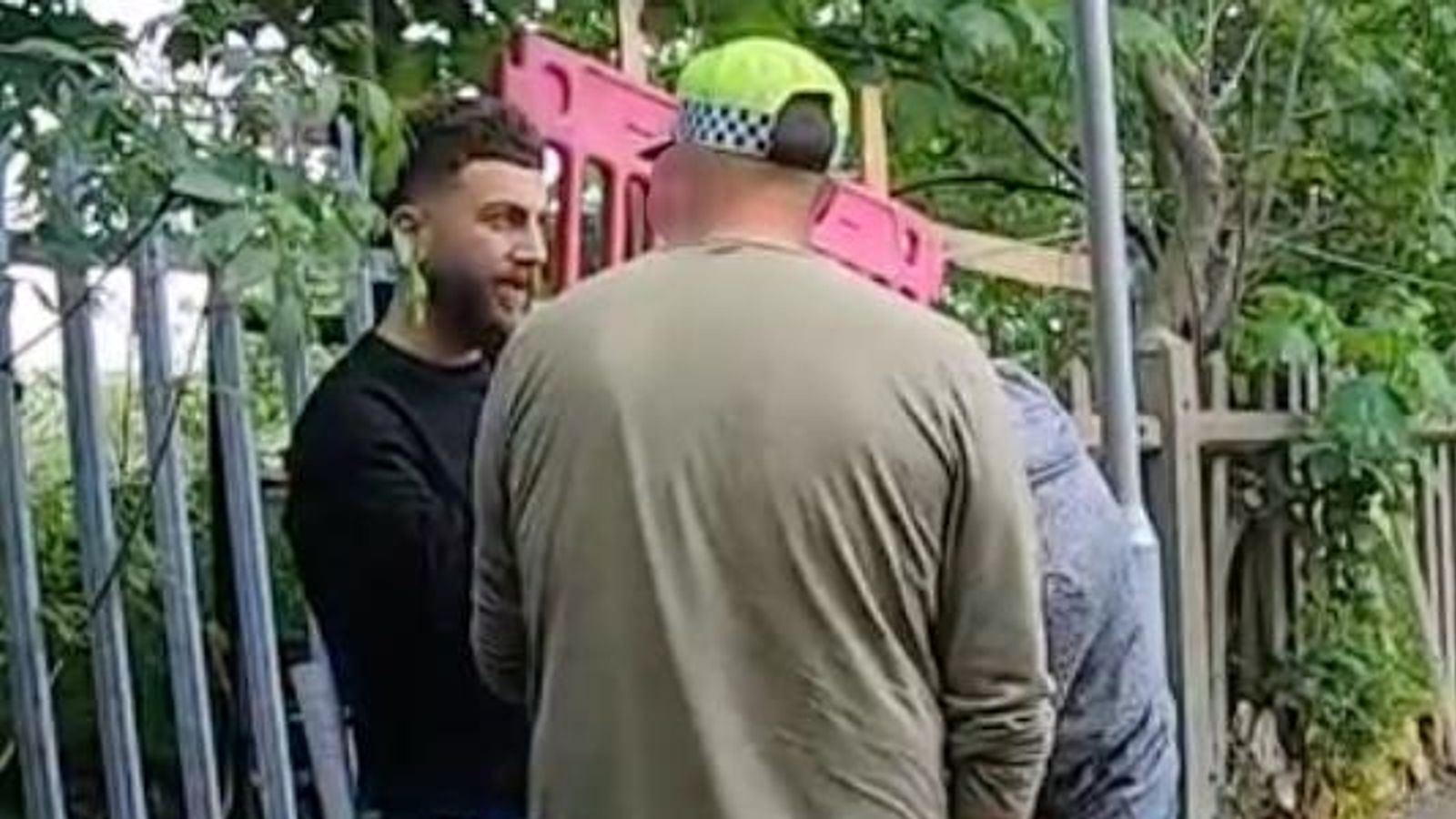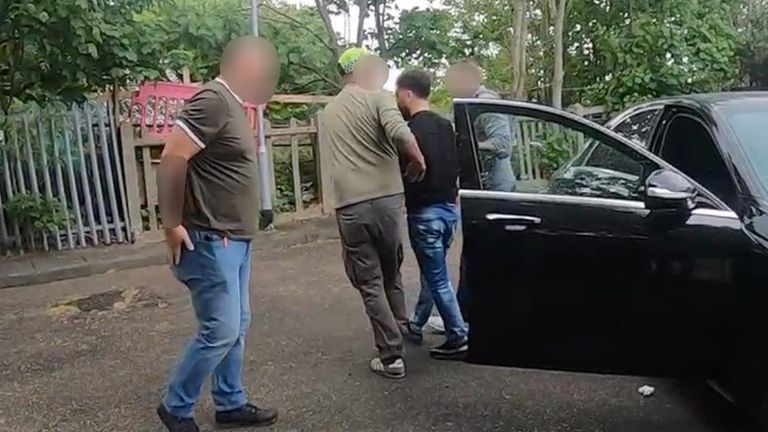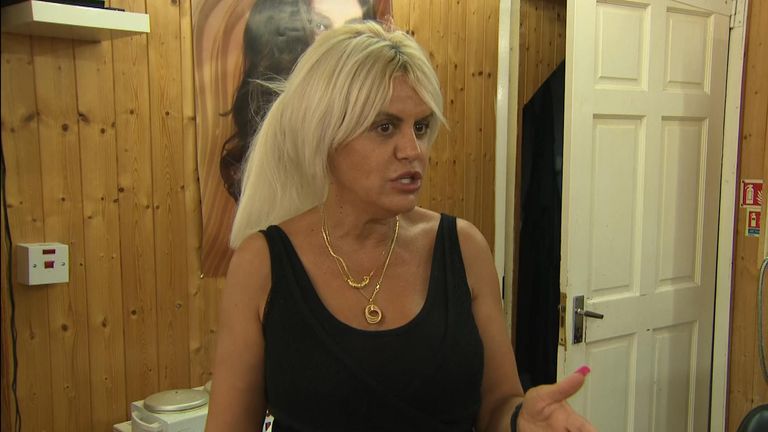Hewa Rahimpur, a London shopkeeper charged with being an international people smuggler, has told a Belgian court that “I am guilty, I have made mistakes but I am not a boss”.
Rahimpur, 30, who has lived in east London since seeking asylum in Britain in 2016, is accused of leading a criminal gang that arranged for migrants to be supplied with boats, engines and life jackets, each paying thousands of pounds.
It’s alleged that Rahimpur’s gang brought up to 10,000 people across the Channel.
Addressing the court in Bruges, he denied organising the crossings and said he had simply handled payments between migrants and smugglers.
Rahimpur, who faces 13 years in prison if convicted, said he had first arrived in Britain after hiding himself in a lorry and had then moved to London to have “a simple life”.
He said he was introduced to members of the people-smuggling gang after paying for his brother, who was seriously unwell, to travel to Britain, via Belarus, Germany and France.
“It is our fate, as Kurds, to always migrate illegally,” Rahimpur said.
In a 25-minute long address to the court, made without notes, he claimed there were no messages on his phone linking him to smuggling and also said there were “265 hours of recording of me by the UK’s National Crime Agency and they don’t have a single piece of evidence against me”.
He admitted only being a ‘Havala banker’, accepting money from migrants, taking a commission, and then passing the money on to the people who organised the small boat crossings.
He said he passed on $159,000 (roughly £127,400) to smugglers in Turkey “but that is all I did – I have not mistreated anyone or done wrong to anyone”.
“He told me he gets a commission, but that the money goes to the real organisers,” his lawyer, Kris Vincke said when we met.
“That money is going to the real leaders of the gang – I think that’s in Turkey or Iraq, but the investigation didn’t find those people.”
Rahimpur sobs in court
Dressed in black shirt, dark jeans and trainers, Rahimpur wore headphones to listen to a translation of the address from Vincke, which was delivered in Flemish.
When Vincke mentioned his sick mother and the prospect that Rahimpur may never see her again, he slumped in his chair and sobbed.
Vincke argued in court that the actual gang leaders are based in Iraq and Turkey and that Rahimpur had played a purely administrative role.
He also said that Rahimpur had been alone in a cell for 23 hours each day and had been so traumatised by his confinement that he had gone on hunger strike for 14 days as a protest.
But the prosecution in this case maintains that Rahimpur actually played a central role in organising people-smuggling – not simply taking money but also co-ordinating the delivery of boats, engines, life jackets and other equipment to waiting groups of migrants, who had typically paid thousands of pounds each.
Read more:
Suspected people-smuggling gang leader goes on trial
Inside trial of alleged key figure in smuggling group
It’s a case that was allegedly corroborated by another smuggler, a man called Sangar Kamal, who was arrested and found with messages from Rahimpur on his phone.
Kamal said Rahimpur was the leader of the gang.
And it’s also clear that there are plenty of other questions that still linger around Rahimpur.
Sky News has learnt that, among the defendants, Rahimpur is known by another name.
Several that we spoke to said he was actually called Hama Khoshnaw, and was originally from Iraq, rather than Iran.
Sources have also told us they believe he owns an expensive property in Kurdistan, valued at around £1.5m.
‘We didn’t know what was happening’
In court, Rahimpur has been portrayed as a central figure in a sprawling, international crime ring. And that has come as a shock to those who knew him as an unassuming, friendly character in east London, where he made his home after claiming asylum in Britain in 2016.
Linda, a hairdresser in Ilford, rented out a space to Rahimpur, which he used as a food kiosk. “It was just a sweet shop and he was paying his rent like normal,” she said.
“For two years, he was paying his rent normally. Everything was normal. He was like gold. I didn’t know what was happening until my next-door neighbour from the chemist, texting me early in the morning to say ‘your tenant is on London Crime’.”
“We didn’t know what was happening. We didn’t believe it. It was shocking for all of us.
“Now I’m finding out more things about him – on his contract, he’s not married. I didn’t know he had kids. But he always talked about his mum, but we never saw her.
“I saw so many people go by, saluting him and talking to him and he was very nice to them. He was nice to everyone around here.”
Vincke said his client was “very anxious because he has lost everything” and was fearful of a lengthy prison sentence. He hoped to return to Britain, said Vincke, to be reunited with his family.
If he’s found guilty, that reunion will be a long way off.



